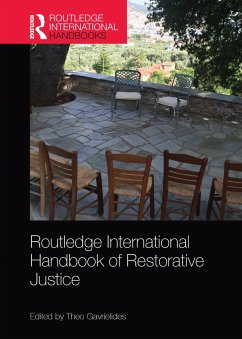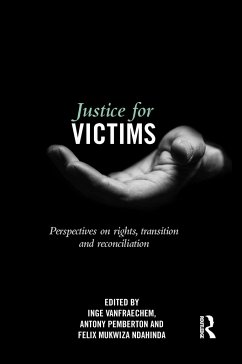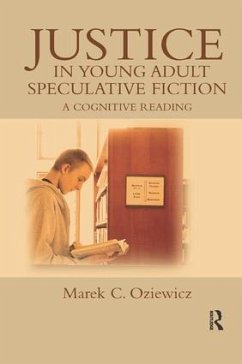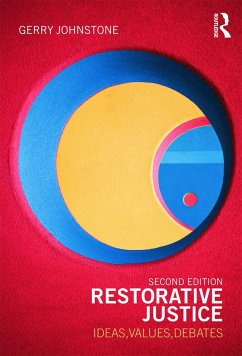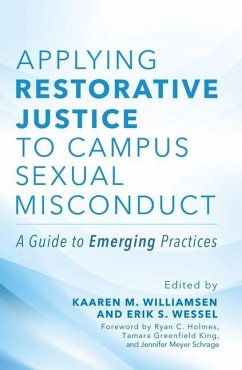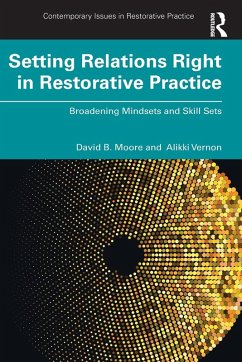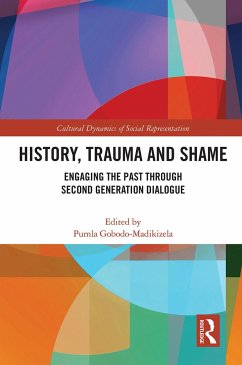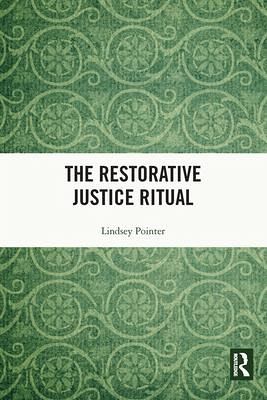
The Restorative Justice Ritual
Versandkostenfrei!
Versandfertig in 6-10 Tagen
45,99 €
inkl. MwSt.
Weitere Ausgaben:

PAYBACK Punkte
23 °P sammeln!
Restorative justice is an innovative approach to responding to crime and conflict that shifts the focus away from laws and punishment to instead consider the harm caused and what is needed to repair that harm and make things right. Interest in restorative justice is rapidly expanding, with new applications continuously emerging around the world. The restorative philosophy and conference process have shown great promise in providing a justice response that heals individuals and strengthens the community. Still, a few key questions remain unanswered. First, how is the personal and relational tra...
Restorative justice is an innovative approach to responding to crime and conflict that shifts the focus away from laws and punishment to instead consider the harm caused and what is needed to repair that harm and make things right. Interest in restorative justice is rapidly expanding, with new applications continuously emerging around the world. The restorative philosophy and conference process have shown great promise in providing a justice response that heals individuals and strengthens the community. Still, a few key questions remain unanswered. First, how is the personal and relational transformation apparent in the restorative justice process achieved? What can be done to safeguard and enhance that effectiveness? Second, can restorative justice satisfy the wider public's need for a reaffirmation of communal norms following a crime, particularly in comparison to the criminal trial? And finally, given its primary focus on making amends at an interpersonal level, does restorative justice routinely fail to address larger, structural injustices?
This book engages with these three critical questions through an understanding of restorative justice as a ritual. It proffers three dominant ritual functions related to the performance of justice: the normative, the transformative, and the proleptic. Two justice rituals, namely, the criminal trial and the restorative justice conference, are examined through this framework in order to understand how each process fulfills, or fails to fulfill, the multifaceted human need for justice.
The book will be of interest to students, academics, and practitioners working in the areas of Restorative Justice, Criminal Law, and Criminology.
This book engages with these three critical questions through an understanding of restorative justice as a ritual. It proffers three dominant ritual functions related to the performance of justice: the normative, the transformative, and the proleptic. Two justice rituals, namely, the criminal trial and the restorative justice conference, are examined through this framework in order to understand how each process fulfills, or fails to fulfill, the multifaceted human need for justice.
The book will be of interest to students, academics, and practitioners working in the areas of Restorative Justice, Criminal Law, and Criminology.





